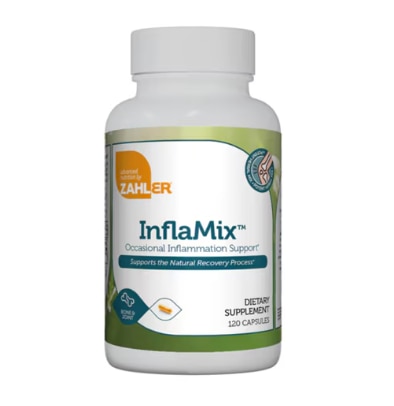When we age, we run a higher risk of developing an array of diseases. But there’s one condition associated with aging that may be foreign to you — inflammaging.
What is inflammaging?
Inflammaging is a term coined in a 2000 study published by the Annals of the New York Academy of Science. The term refers to chronic low-grade inflammation associated with aging.
Inflammaging “can make you age even faster and increase your risk for developing serious health conditions,” Brown University Health explains.
What is the relationship between aging and inflammation?
According to Brown University Health, inflammation is how our bodies typically react to injury, disease or bacterial or viral infections. As we age, the level of inflammation in our bodies goes up and never goes away.
A key source of inflammatory signals is stressed-out, damaged cells that release proteins that indicate something is wrong, Alan Cohen, associate professor of environmental health sciences at Columbia University’s Mailman School of Public Health, told The Washington Post.
“As we age, our internal stressors increase. This is more or less inevitable. Something is not going well. In any species that ages, something is not functioning as well with age,” Cohen said.
A study co-authored by Cohen and published in 2025 by the journal Nature Aging characterized inflammaging as “a hallmark of aging.” However, the study concluded that inflammaging is not a universal phenomenon and appears to be linked to living in “industrialized” places such as the U.S., France and Japan.
What are the effects of inflammaging?
Brown University Health and an article published in 2016 by the Journal of Immunology Research say chronic inflammation speeds up the aging process and can contribute to a number of health conditions, such as:
- Age-related macular degeneration, an eye disease that blurs vision
- ALS (Lou Gehrig’s disease), a progressive condition that harms nerve cells in the brain and spinal cord
- Alzheimer’s disease
- Arthritis
- Cancer
- Heart disease
- Osteoporosis
- Parkinson’s disease
- Type 2 diabetes
Furthermore, chronic inflammation can harm brain health and contribute to frailty, according to Brown University Health. It can also increase the risk of death.
The Journal of Immunology Research article noted that a moderate amount of inflammation can be beneficial earlier in life by neutralizing cytokines, which are small proteins that help strike a proper balance between pro-inflammatory and anti-inflammatory effects. But an excessive amount of inflammation later in life can cause harm.
How to fight inflammaging
Brown University Health and Piedmont Health Care supply these tips for combatting inflammaging:
1. Stick to an anti-inflammatory diet
Eating a diet focused on fresh fruit, leafy green vegetables, fatty fish, nuts, olive oil and whole grain foods is important in taking aim at inflammaging. Just as important is avoiding heavily processed foods such as refined carbohydrates, high-fat dairy products, fried foods and red or processed meats.
2. Maintain a healthy weight
Excess fat causes inflammation, particularly in fat cells. By maintaining a healthy weight, you can lower your risk of fat-related inflammation.
3. Stop smoking
Smoking tobacco products promotes inflammation and damages the immune system. It’s also a well-documented risk factor for lung cancer, bladder cancer and other types of cancer.
4. Exercise regularly
Following an exercise regimen — just 30 minutes a day of brisk walking, swimming or cycling, for instance — can help reduce inflammation.
5. Manage your health
Seeing your health care provider for regular screenings and to monitor conditions such as high blood pressure and high cholesterol can keep you on a healthy track.
6. Improve your sleep
Lack of sleep can help trigger chronic inflammation. Most adults need to get seven to nine hours of sleep each day.
7. Limit use of certain medications
Overdoing it with antibiotics, antacids and non-steroidal anti-inflammatory drugs or NSAIDs (including ibuprofen, naproxen sodium and aspirin) can be a risk factor for chronic inflammation.
8. Cut down on alcohol consumption
Alcoholic beverages increase inflammation. Therefore, you should limit your alcohol intake or avoid alcohol altogether to decrease inflammation.
9. Keep stress in check
Stress can boost inflammation. As such, you should lower your stress level by taking part in activities such as meditation, yoga, outdoor walks and gardening. In addition, restrict your use of cellphones, computers and other electronic devices, which can aggravate stress.




